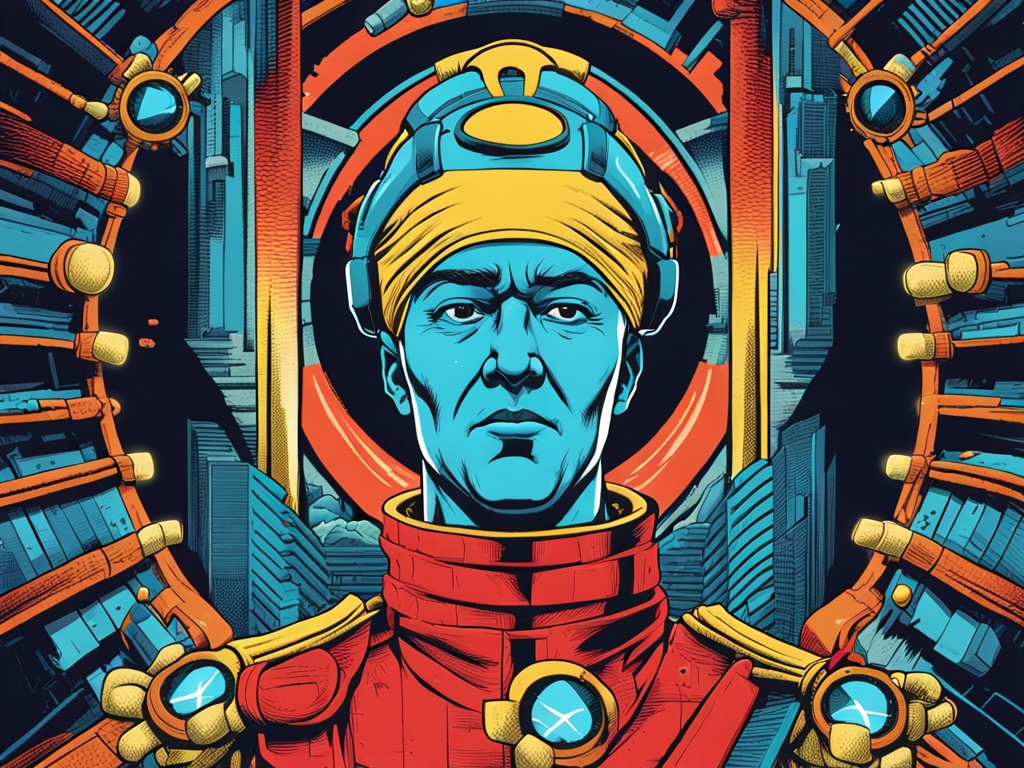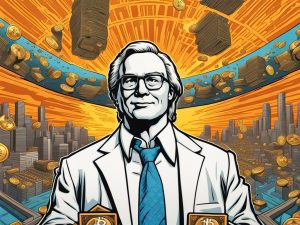Reimagining Healthcare with Decentralized Science 🚀
The integration of decentralized science (DeSci) into healthcare is poised to revolutionize how medical research is conducted, funded, and shared. By leveraging blockchain technology, artificial intelligence (AI), and community-oriented governance, DeSci empowers patients to reclaim ownership of their health data while directing research initiatives toward genuine community needs. This year marks a pivotal moment where the convergence of these technologies could transform the healthcare landscape.
The Paradigm Shift in Medical Research 🔄
DeSci signifies a groundbreaking change similar to what John Snow initiated in the 19th century during a cholera outbreak in London. While mainstream medicine attributed disease transmission to ‘bad air’, Snow’s innovative approach involved meticulous data collection from the community, ultimately showcasing that cholera stemmed from contaminated water sources. This approach of utilizing community data sets the groundwork for an evolved method of handling medical research today.
Data at Your Fingertips 📊
With the advent of modern technology, individuals generate approximately two gigabytes of health-related data daily through their smartphones. This encompasses everything from physical activity levels and sleep patterns to various biometrics. Despite this wealth of data, it often remains trapped within large institutions, inaccessible for comprehensive analysis that could lead to significant health discoveries.
– The healthcare conundrum:
– Increasing health data availability.
– Limited access for researchers seeking insights to combat health crises.
This juxtaposition leaves us in a paradoxical situation where health data is abundant, yet comprehensive insights are scarce.
This Year’s Transformative Technologies 🔧
The answer to this dilemma lies in incorporating three pivotal technologies: blockchain, artificial intelligence, and decentralized governance.
– Blockchain: Establishes a new framework for medical data management, enabling individuals to retain control over their health information while also contributing to broader research goals. Each data entry can be tracked, ensuring transparent usage and equitable compensation for contributions to scientific advancements.
– Artificial Intelligence: Functions as a powerful analytical tool, capable of deciphering extensive sets of anonymized health data. It identifies correlations that traditional methods might overlook, such as early markers of neurological issues or mobility problems.
Redefining Research Priorities ✨
The real distinction arises when these technologies combine under decentralized governance. Empowering patients, researchers, and healthcare professionals to collaboratively prioritize research projects promotes a more democratic approach to science.
– Benefits of this model:
– Ensures diverse health conditions, including rare diseases, receive attention.
– Fosters transparency in how funds are allocated and projects chosen.
The implications of such developments are monumental, converting personal health data—often sold for significant sums—into an asset you control. Researchers gain access to a vast, untapped reservoir of real-world data that accelerates medical discoveries significantly.
A Positive Trend in Clinical Trials 📈
Evidence suggests that early adopters of these innovative approaches in clinical trials report recruitment speeds threefold compared to conventional methods. AI-driven assessments of decentralized datasets are unveiling patterns that remain obscure in siloed environments. Communities are actively steering resources towards health issues that resonate with them rather than being confined by traditional funding limitations.
Challenges on the Horizon ⚠️
Reflecting on Historical Lessons ⏳
The current moment in medical history bears striking similarities to Snow’s experiences. Just as his contemporaries struggled to let go of outdated beliefs regarding disease propagation, today’s medical institutions often find it hard to accept that meaningful insights can emerge from analyzing copious amounts of smartphone-generated data instead of relying solely on controlled laboratory settings.
What’s crucial now is recognizing that the technology enabling this transformation is already available. The communities that can drive this change are forming, much like Snow’s collaborative efforts in the 1800s.
Concluding Thoughts: The Path Forward 🛤️
DeSci is challenging conventional perceptions about who can significantly contribute to medical breakthroughs and the means through which these advancements occur. As we embark on this journey, society must embrace this paradigm shift to unlock the vast potential hidden within our health data, ultimately transforming the future of healthcare.
Hot Take: The Power of Collective Action in Health Data 💪
The evolution of health data management through decentralized science champions patient empowerment and collaborative research efforts. By stepping into this new paradigm, society can ensure that health data serves the greater good, driving meaningful advancements in medical research and leading to better health outcomes for all. This year marks a significant turning point in the way healthcare can be experienced and delivered.
The evolution is not just about technology; it’s about empowering individuals and communities, placing control back into the hands of the people while paving the way for unprecedented advancements in medicine.
Mapping Disease: John Snow and Cholera
Map of London by Dr. John Snow
Big Data in Healthcare Market Trends




 By
By
 By
By
 By
By
 By
By
 By
By